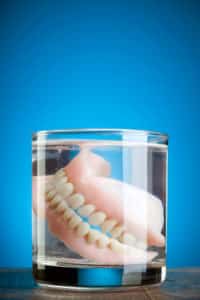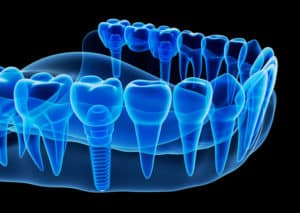
Losing a tooth and leaving the space empty can cause many other problems from bone loss in the jaw to your teeth completely realigning in your mouth and causing discomfort. So now that you know that you have options, let’s look at partial dentures.
Closing The Gaps
Dental implants can be expensive and take several appointments to complete. Additionally, if you have bone loss you may not be a good candidate for dental implants. That’s where a partial denture can benefit you. There are different options for partial dentures when it comes to choosing the material they’re made out of and the style. Metal partial dentures have clips and hooks that attach to the healthy teeth around your missing tooth.
Like regular dentures, they can be removed for cleaning and at night. We recommend these types of partial dentures mainly for missing molars as the clasps can sometimes be visible and you may find them aesthetically unpleasant.
Flexible dentures are another option. Instead of the metal, the teeth are attached to a flexible plastic similar to a traditional denture. These also can fit around your existing teeth, however the plastic can be clear or pink to match your gums and is much less noticeable.
Whichever path you choose for closing the gap left by a missing tooth, we are here to help you. We have many examples of dentures, partial dentures and dental implants in our office that you can examine and explore. Give our office a call today and our knowledgeable staff will work with you and set up a consultation. We look forward to restoring your wonderful smile!”

 Dental implant surgery can be an overwhelming idea, however, our staff is here to help you through it and walk you through what to expect when you’re recovering.
Dental implant surgery can be an overwhelming idea, however, our staff is here to help you through it and walk you through what to expect when you’re recovering.